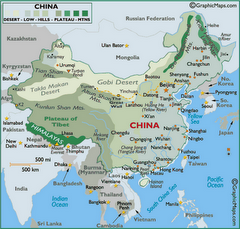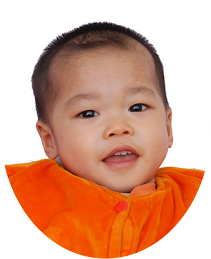
Today I saw this interesting article. It was in usatoday and got lots of negitive feedback.
While I too, am waiting (now at 25 1/2 months) I applaud China for getting it's head out of it's ass and starting to look at it's Human Rights policies. Of course, I think China is slightly biased towards us outsider's average weight ranges and if you have seen the air pollution in China, you'd know that second-hand tobacco smoke would be a step up.
Here is parts of the article, edited for length. ~
GUANGZHOU, China — The White Swan is empty. The five-star hotel here that historically has housed American couples looking to adopt Chinese babies now only sees a slow trickle of would-be foster parents after the Chinese adopted a raft of stricter rules a few years back.
The cribs and baby strollers the hotel lends out sit idle. The tables in its 1980s-era lounge overlooking the Pearl River are gloomily vacant.
None of this bodes well for American couples looking to adopt here, but it highlights the progress China has made as social mores here shift for the better.
Since 1989, China has sent more orphans — over 70,000 — to the United States than any other country. American couples flock here because its system is far smoother and more transparent than most. And China's one-child policy has resulted in millions of baby girls left abandoned, not to mention millions more aborted. The likelihood that your adopted girl is an actual orphan and does not suffer from, say, prenatal alcohol syndrome, is greater in China than most places. And let's face it, Chinese babies are cute — something the authorities here play up. But adoptions are down dramatically, as a result of the restrictions imposed in 2007: just fewer than 4,000 Chinese babies were adopted by American couples last year, about half the total in 2005.
Much is fair game to disqualify prospective parents: Age (nobody under 30), marital history and sexual orientation all matter now. Even issues of health — being overweight or taking antidepressants — can nix a couple's application. That has Americans frustrated.
But China's new adoption rules, while onerous, simply reflect its evolution into a more modern society. After all, Beijing is well within its right to decide its own rules and weed out unhealthy parents. Why shouldn't it try to prevent its orphans from inhaling secondhand smoke? China also appears to be relaxing its laws on the number of children Chinese families can have. Sure, it's partly a PR gambit. Ahead of last year's Olympics, the government did not want be perceived abroad as deadbeat caretakers. But it's also a concerted effort to reverse its gender imbalance. "China's feeling the stress of having lost so many girls," says Adam Pertman, executive director of the Evan B. Donaldson Adoption Institute.
As income levels in China rise, more couples are just breaking the one-child policy and paying the fine (about $5,000). Adoptions by Chinese couples are up. And social attitudes are evolving, too, resulting in fewer parents discarding their daughters. Half the Sky Foundation, a U.S.-based nonprofit, reports that fewer healthy babies are entering its orphanages in China.
Of course, data are difficult to verify, but these anecdotal trends are positive. What's more, the notion of American foster parents rescuing abandoned orphans from Dickensian state-run institutions, while romantic, may be somewhat overblown. "Unfortunately, this story is largely fiction," E.J. Graff of Brandeis University wrote recently in Foreign Policy.
Most orphans are older than 5, sick or disfigured — not the kind most Westerners want. Think of the baby in the newspaper staring up at readers with a cleft lip.
Even so, it seems unfair: At a time when a California woman makes headlines for giving birth to octuplets, there are thousands of infertile American couples for whom foreign adoption remains their best — and least costly — option for parenthood. Their prospects are only exacerbated by China's tougher regulations.
But it signals good news for Chinese society, which is becoming more welcoming toward its newborn daughters and domestic adoption. Were the White Swan to close, nobody in China would probably mind.
Lionel Beehner is a writer based in New York City.
Posted at 12:15 AM/ET, March 18, 2009




